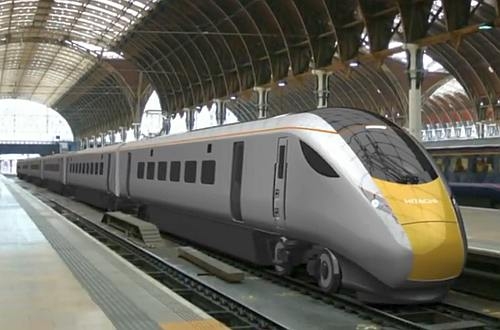Hitachi will deliver a total of 596 vehicles which will replace most of the ageing 200km/h High Speed Trains (HSTs) used on the Great Western Main Line (phase 1) and East Coast Main Line (phase 2). The fleet of 92 electric and bi-mode trains will be maintained at new depots in Swansea, Bristol, London (North Pole) and Doncaster. Under the fixed-price train provision agreement between DfT and Agility, Hitachi will maintain the fleet for 27.5 years.
The initial phase comprises 21 nine-car electric trains and 36 five-car bi-mode trains for the Great Western franchise (369 vehicles), while the second phase includes 12 five-car electric trains, 10 five-car bi-mode trains, and 13 nine-car bi-mode trains for the East Coast franchise (227 vehicles). DfT says the Great Western order has been amended with more electric-only sets and two train types instead of three to reflect the recent decision to extend electrification from Cardiff to Swansea.
According to DfT, the price of each electric vehicle is £2.4m, while bi-mode vehicles cost £2.8m. A five car train will seat 315 passengers and a nine-car train will seat 627.
The first four trains, all bi-mode five-car sets, will be assembled at Hitachi's Kasado plant in Japan before final assembly moves to a new purpose-built facility at Newton Aycliffe in northeast England, which will employ 730 people. Construction will begin next year on the plant, which will come on stream in 2015. The site will initially assemble up to 20 vehicles per month for the first contract, although it will have capacity to produce up to 36 vehicles per month.
Agility expects to reach financial close next year on the contract for the East Coast trains, which are due to enter service in 2018. This contract will include an option for a further 30 nine-car electric sets, which would replace the 225 trains built in the late 1980s.
The Great Western trains will be used on London – Cardiff – Swansea, London – Oxford – Hereford, London – Gloucester – Cheltenham, and London – Bath – Bristol services. The East Coast sets will be deployed on services from London to Leeds, Edinburgh, Aberdeen, and Inverness.
A full description of the train can be found in the July 2011 issue of IRJ (p32).

